15 surprising statistics about today's LGBTQ people
Frank Olito

- Statistics show how LGBTQ people are facing unique challenges and discrimination.
- LGBTQ youth are 120% more likely to experience homelessness than heterosexual youth.
- One in three transgender people said they had to teach their doctors about being trans.
In the US, 5.6% of adults identify as LGBTQ.
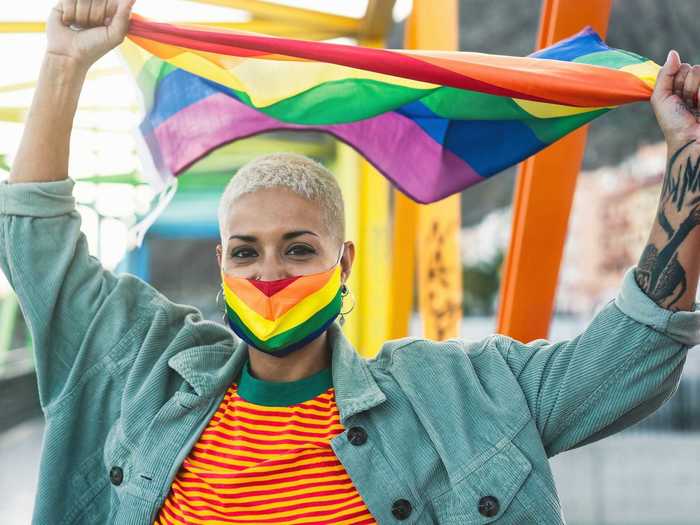
In the US, 86.7% of adults say they are straight, and the remaining say they identify as LGBTQ or do not answer the question, according to a Gallup poll from 2021.
Although 5.6% may seem low for the number of LGBTQ people in the US, the percentage is up from 2017's 4.5%.
Of America's LGBTQ population, 54.6% say they are bisexual.
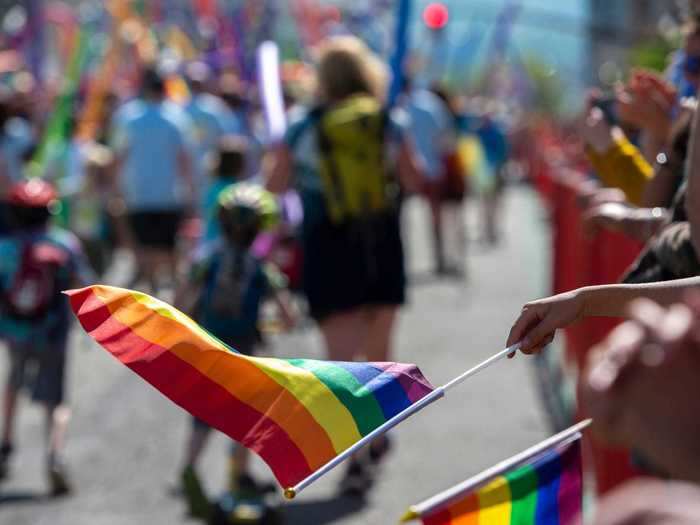
According to Gallup, the remainder of the LGBTQ population is broken down as follows: 24.5% identify as gay, 11.7% identify as lesbian, and 11.3% identify as transgender.
LGBTQ youth are 120% more likely to experience homelessness than heterosexual youth.
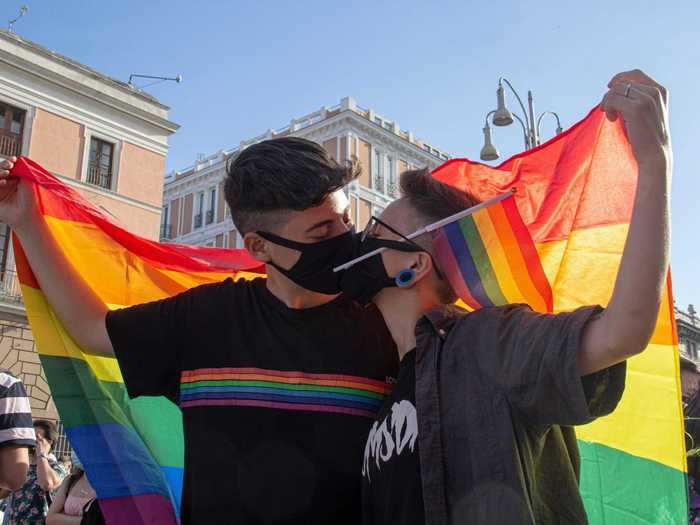
A 2017 study by Voices of Youth Count, an initiative at Chapin Hall at the University of Chicago, found that LGBTQ youth had a 120% higher risk of being homeless.
LGBTQ youth make up just 7% of the youth population in the US, but they make up 40% of the youth homeless population, according to True Colors United.
Seventy percent of LGBTQ youth said they experienced poor mental health during the COVID-19 pandemic.
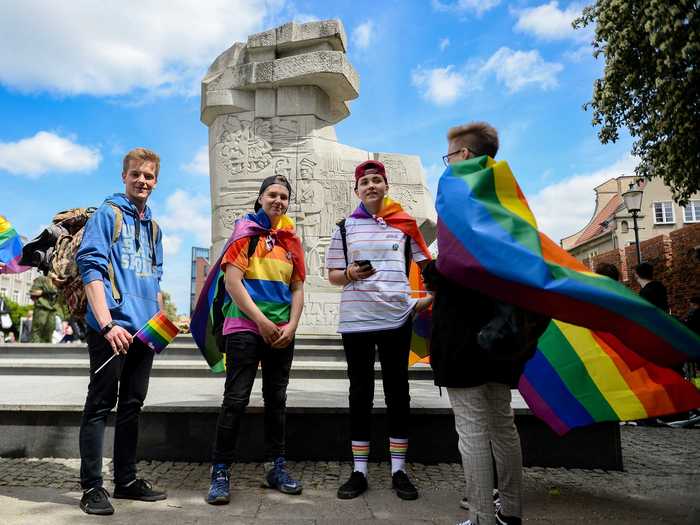
The Trevor Project found that the pandemic in 2020 made the living situation for 80% of LGBTQ youth more stressful, leading to mental health issues.
Three-quarters of LGBTQ youth said they have experienced discrimination because of their orientation at least once.
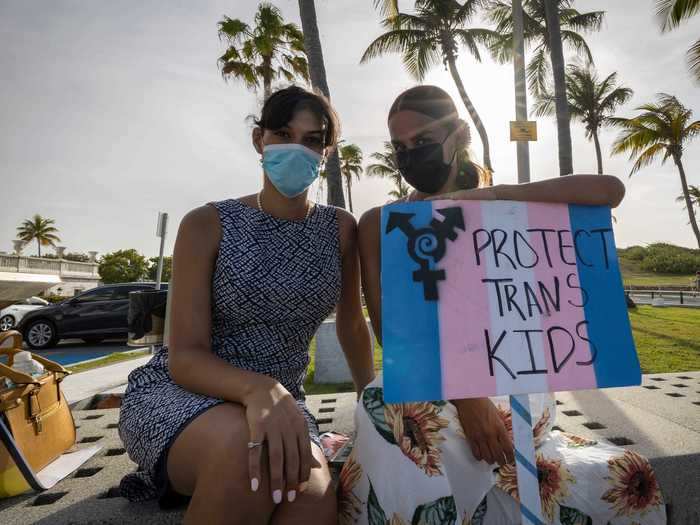
According to a 2021 report by The Trevor Project, more than 50% of LGBTQ youth experienced discrimination within the past year.
Thirteen percent of LGBTQ youth said they have been subjected to conversion therapy.
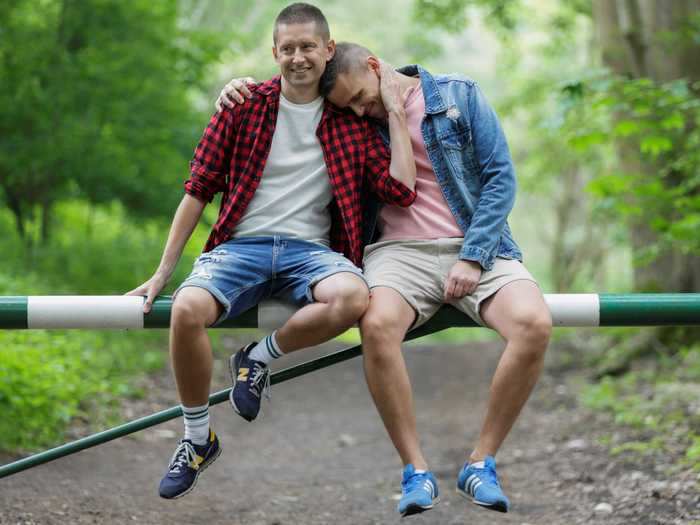
Of the 13%, 83% said they went through conversion therapy when they were younger than 18, according to The Trevor Project.
Of Black youths who identify as LGBTQ, 17% said they had been physically threatened or harmed because of their orientation.
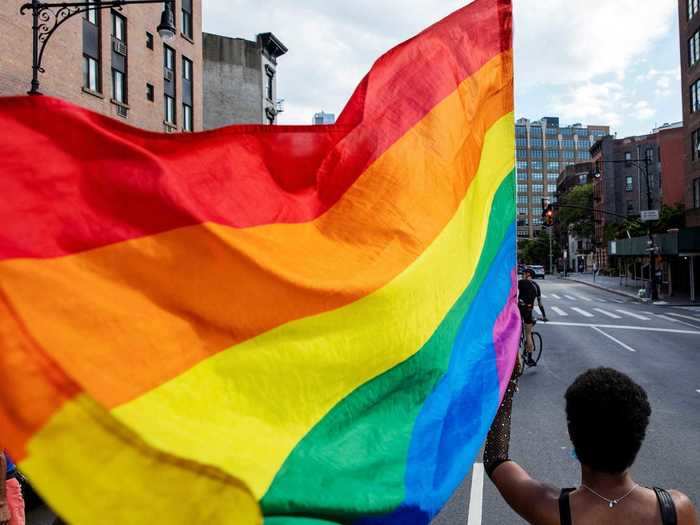
Of Black youth who identify as LGBTQ, 82% said they had at least one supportive person in their life, according to a 2020 report by The Trevor Project, which also found that Black transgender youth who had supportive family members had lower rates of attempted suicide.
More than half - 54% - of LGBTQ Americans have hidden a personal relationship to avoid discrimination.
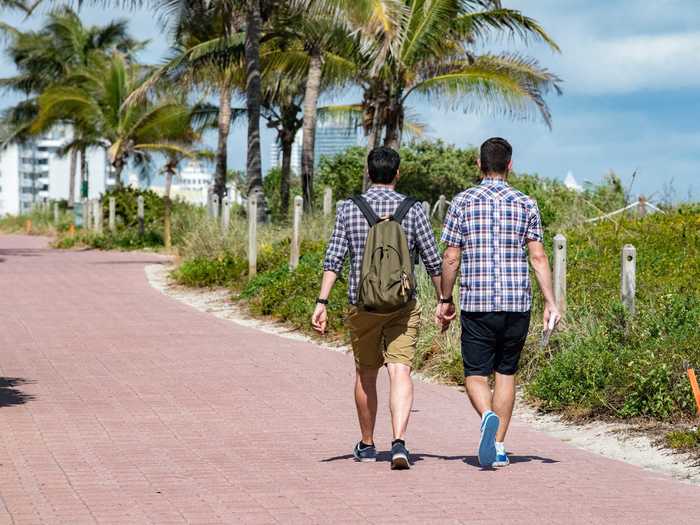
The Center for American Progress reported in 2020 that LGBTQ people choose where they will work, worry about what to wear, and even stay away from public places to avoid discrimination.
Non-discrimination policies, which include sexual orientation, have been implemented by 96% of Fortune 500 companies.

In 2021, the Human Rights Campaign found that 71% of these companies also include transgender-inclusive benefits.
Fifteen percent of LGBTQ people in the US say they have postponed medical treatment out of fear of discrimination.
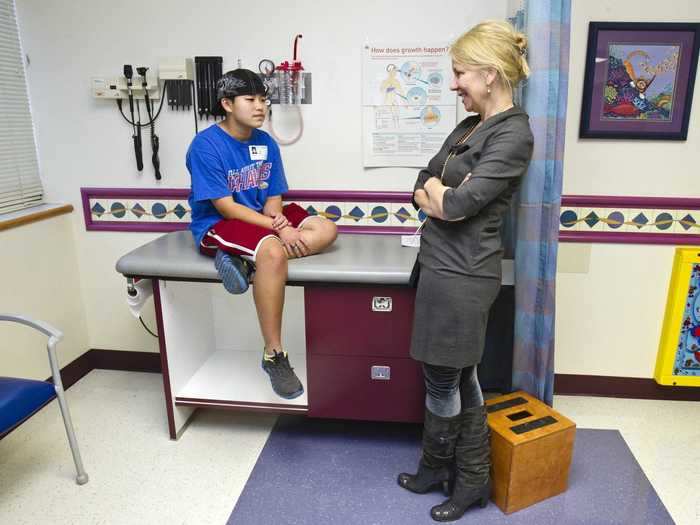
Three in 10 transgender people have avoided seeking medical treatment because of the medical field's lack of understanding of trans issues, according to the Center for American Progress. In fact, one in three transgender people said they had to teach their doctors about being trans.
Almost one in five married same-sex couples who live together have children.
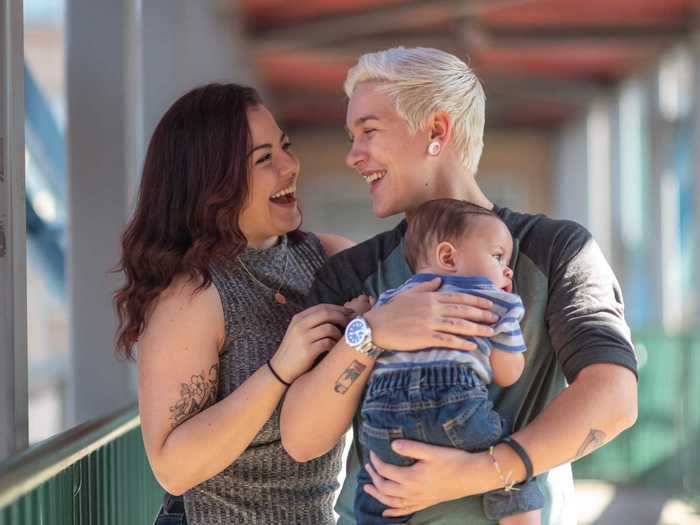
In 2019, the US Census Bureau found that 1.5% of households with couples in the US are same-sex households. Of those, 18.9% of married same-sex households have children, and 12.1% of unmarried same-sex households have children.
More than a quarter of trans adults - 29% - live in poverty in the US.
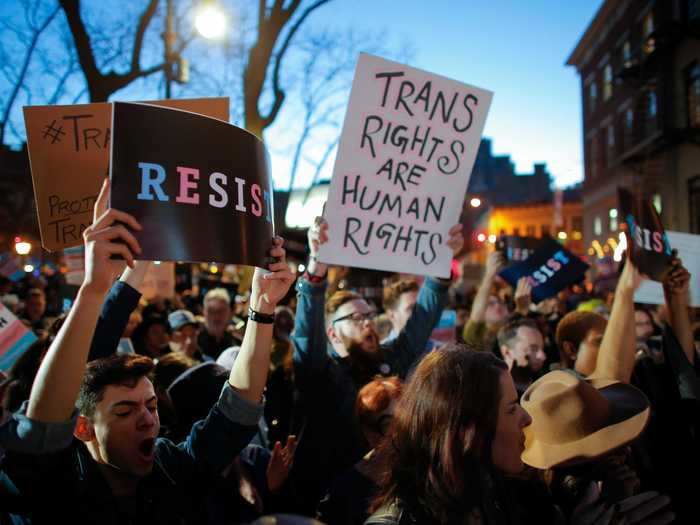
Cisgender people's poverty rate is 15.7%, while LGBTQ people have a poverty rate of 21.6%, according to a 2019 report by UCLA's Williams Institute.
Forty-two percent of transgender people said they did not vote in at least one election out of fear.
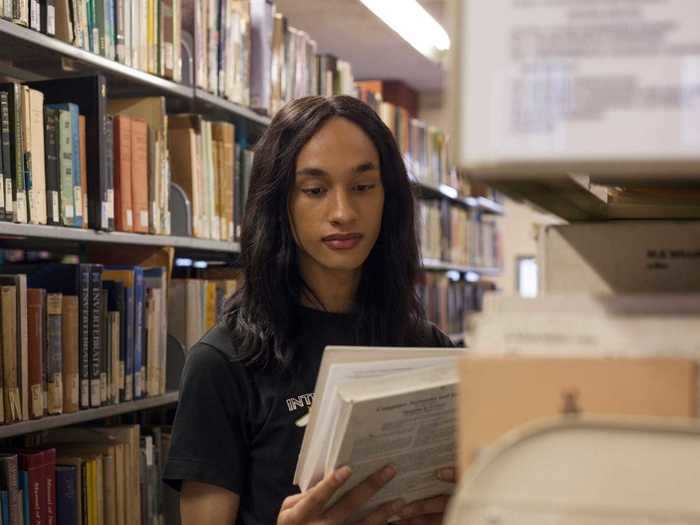
According to a 2019 survey by the Human Rights Campaign, 46% of transgender people of color said they didn't vote because their ID had the wrong name, gender, or photo.
Forty-four transgender people were killed in the US in 2020, marking the most violent year on record.
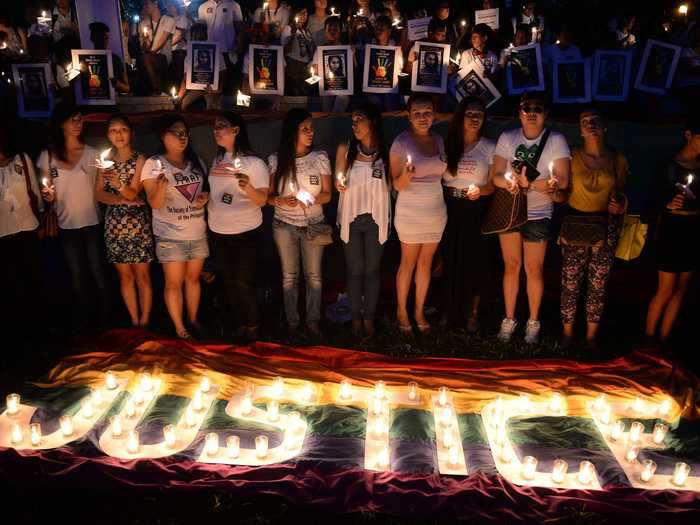
In 2013, the Human Rights Campaign started tracking the number of transgender people killed in the US, and last year, was the deadliest. Just five months into 2021, the Human Rights Campaign reports that at least 27 transgender or gender non-conforming people have been killed.
Of new HIV diagnoses, 69% are gay and bisexual men, and it skews toward non-white people.
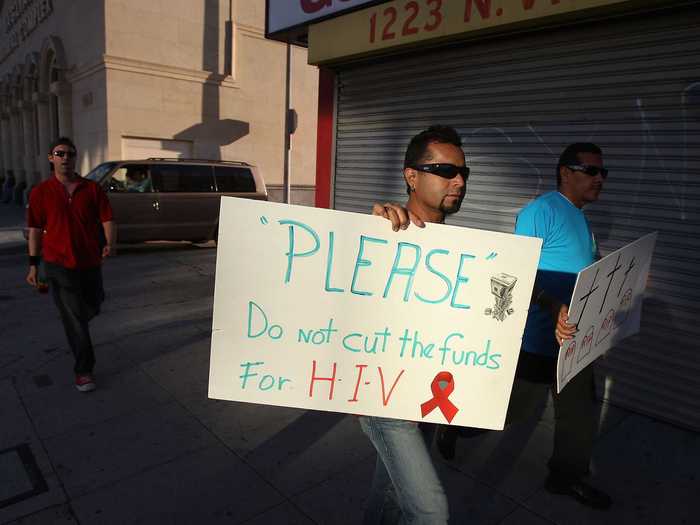
In 2018, the CDC found that of the new HIV diagnoses, 37% were Black men who identify as gay or bisexual as opposed to 27% of white men who identify as gay or bisexual.
READ MORE ARTICLES ON
Popular Right Now
Popular Keywords
Advertisement